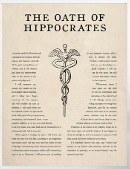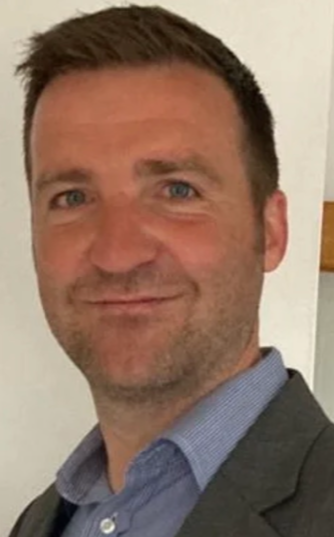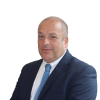What are the fundamental approaches to being the best possible doctor caring for patients?
Here, I take a look at the critical importance of good communication skills, providing sufficient time for a safe and effective service as a GP, and why I decided to become a health and well-being coach.
Experiencing different patient approaches
I remember back in 2010 to 2011, when I was considering what career path I would follow after completing my junior doctor training. I loved Emergency Medicine, making quick clinical decisions in pressure situations, in busy departments dependent on acute diagnosis and acute treatments. The Resuscitation Unit, or "Resus" was a particular favourite place, where a team worked together on critically ill patients brought in by ambulance. I valued the team mentality and cohesion in bad and good situations alike. It was an adrenaline-filled dramatic arena. However, one thing that was lacking was the personal relationship with one’s patient, getting to know their background and personality, and then seeing their progression during their recovery.
The family doctor
During my training I was fortunate to meet some truly inspirational ‘old-school’ General Practitioners. They helped me to fall in love with the idea of a career in general practice. These senior doctors knew their patients’ backgrounds even before entry to their room, as they had been looking after them for many years. Likewise, they knew the social backgrounds, personal history and even sometimes the whole family set-up of the individuals they were seeing. This brought a knew layer to clinical medicine. Watching ‘old school’ GPs consult with patients that they knew well gave a different dimension to the ‘patch up and move on’ approach of the Emergency Medicine conveyor belt. Follow-up was also something that was valuable. How did the patient get on with the advice or medication provided?
The medical 'team' approach
I witnessed a greater depth to the doctor-patient clinical relationship. The old-school GPs took a more-detailed history from each patient, including information relevant to potential compliance barriers, for example, checking that the inhaler that “didn’t do a thing” was actually being taken properly. The team effort aspect was still present; just in a different way. Most of a GP’s practice is ‘behind closed doors’ and one-to-one; however, this is supported by other members of ‘the multidisciplinary team’, including other doctors, nurses, Healthcare Assistances and other Allied Healthcare Professionals such as Advanced Nurse Practitioners, Social Prescribers and Counsellors.
 A keen sense of justice
A keen sense of justice
The importance of adopting a patient-centric stance.
As part of my GP training I had to undergo a ‘Clinical Skills Assessment’. Part of this CSA was a rigorous ‘mock surgery’, using actors as pretend patients. I finished 3rd in my sitting, which was a proud achievement. The focus of this exam was strong communication skills in a diverse number of scenarios. Passing required demonstration of an important set of skills, covering the following:
- Holistic practice.
This involved demonstrating that you are considering the presenting complaint from the patient’s biological perspective, but also considering the ‘bio-psycho-social’ aspects of the case. For example, a bad back presentation may be considered from its perspective of pain, ruling out Red Flags, investigation and a rehabilitation plan. However, the successful scores in the CSA came from the doctor who considered this from the additional perspective of the impact on the patient’s mental well-being and functional needs, in addition elucidating whether the patient’s pain impacted their work or home life, with possible financial / childcare repercussions if unable to work.
- Patients’ concerns.
In this age of the internet and of ‘Doctor Google’, patients often book their GP appointment with pre-conceived theories as to the cause of their symptoms. This is encompassed as ‘ICE’: the patient’s ‘Ideas, Concerns and Expectations’ as to the diagnosis most feared, and what they expect to come out of the consultation. A patient may simply be after a sick note or a referral, so it is important to elucidate this early in the consult, in order to enable a more-focused history.
Pic: Matt Le Tissier (Southampton and England) with Ref Dr Cartland
- Listening skills.
Active listening is the key here, but also recognising the time constraints of the 10-minute consultation. The golden minute, where you ask the patient what their presenting complaint is, is an open question, after which the GP should then remain quiet and let the patient speak freely for a short time. This then forms the framework for the rest of the consultation.
- Patient-centred care.
The GP should make their patient feel the priority of their attention and decision-making at all times.
- Communicating flexibly.
The GP should communicate in a manner that the patient can understand.
- Safe practice.
Appropriate follow-up must be arranged, with ‘safety netting’, to ensure that potentially serious conditions are not missed.
 Primary care bearing the brunt
Primary care bearing the brunt
I started my career as a GP in the Midlands in 2014, before moving down to Cornwall in 2021. The initial part of my career was an enjoyable experience, allowing me the freedom and time to be the doctor I aspired to be (newly-qualified GPs usually have 15-minute appointments, with supervision, with additional spare ‘catch-up’ slots). Over time, however, this was eroded by increasing workloads, with reduced appointment times and increased appointment numbers. Complex medical complaints and multiple issues all had to be dealt with in single short appointment slots. In addition, poor access to secondary care, long referral times, failed early discharge and inadequate social care all had a negative knock-on effect, with primary care bearing the brunt of a crumbling system. On top of this there were then additional responsibilities from the need to supervise Allied Healthcare Professionals.
A system designed not to care
The significant growth in the numbers of AHPs, such as Advanced Nurse Practitioners, and the previously so-called ‘Physician Assistants’ (who are now being referred to as ‘Physician Associates’!) created an additional confounding effect: these non-medically-qualified staff would tend to see the simpler, more-straightforward cases and the easier patients, meaning that the already busy GP would then be left with a clinic full of the more-complex patients, who would then require additional time.
Belief in the medical foundations
What was expected from me, in terms of practicing holistically, listening to and considering patients’ concerns, communicating effectively in a compassionate way, and providing safe patient-centred care became increasingly impossible to deliver. The fundamentals that were supposed to underpin my medical training were progressively chipped away, and it became impossible to safely and effectively care for my patients within the allotted 10-minute time slots given. Some patients took 5 minutes just to get into you room, due to frailty or disability. I felt constantly stressed and rushed. I was having to ask curt, direct, leading closed questions. I was having ‘lunchbreaks’ on the road whilst doing home visits, only to return to the surgery at the start of an afternoon confronted by a waiting room already heaving with that afternoon’s patients, with me then always finishing the day late, physically, mentally and emotionally exhausted. By the very nature of the working environment and the unrelenting pressure, I was being forced to have to cut corners. That, in additional to constant tiredness, inevitably increased the risk of potential mistakes.
In short, I no longer had the time to be the doctor that I aspired to be, that I was trained to be.
Combining formal medical training with a naturopathic dimension
Now, through drdavidcartland.com, supported by the TotalDoctor platform, for the last 2 years I have been running a Health and Well-being coaching service, which seems to be a unique alternative to the NHS and mainstream healthcare. I use my medical ‘allopathic’ training in anatomy, physiology and pathophysiology, as per my formal medical training, but I am now able to blend this in with a more holistic, naturopathic dimension. I now have the time and focus to be able to utilise effective communication skills, and to be able to sit back, listen and take a thorough and extensive history, considering the full range of each patient’s biological, psychological and social factors.
Patient navigation and education
I often say that my service is principally a listening / history taking service with my individual client. Unlike some non-medically-qualified practitioners, I am able to rule out potential medical red flags, and with my inside knowledge of the healthcare system, I am able to help my clients navigate the many various barriers of the medical system, signposting them to where they need to be. The end result is that I can offer proper holistic advice to each and every client, assisting in devising the best possible plan for them, as an individual. The service that I now offer is specifically an ‘Educational Agreement’, to assist and empower each patient, offering a unique bridge between holistic functional / naturopathic practice and the practicalities of NHS care.
At the end of each session I feel that I have provided genuine education, guidance and practical help to each client, allowing them to move forward more effectively in their healthcare journey. Feedback has been excellent, and month-on-month my bookings have grown.
Responding to the new medical environment in the UK
Many doctors are becoming increasingly despondent from the stress and the workload issues outlined above, and I make a rallying cry to my disillusioned colleagues to break free from the medical matrix and to be the doctor that you trained and aspire to be. Health and Well-being Coaching is at least one positive way forward, and a constructive and practical step in the right direction!
To find further details about the services that I offer on my website, simply visit drdavidcartland.com. Our website provides patient information leaflets on a range of conditions. There is also information about my subscription service, which gives access to a community of like-minded people, with regular informal on-line meetings with myself and a variety of special guests, where we discuss a wide range of important contemporary topics.
Banner pic: Image by Gerd Altmann from Pixabay










